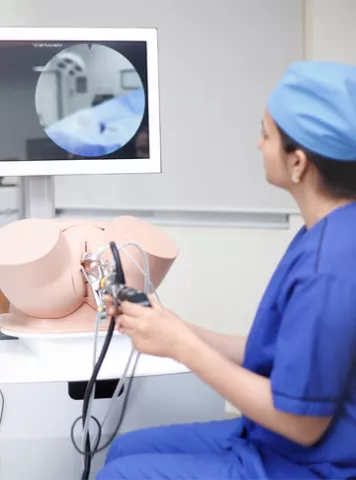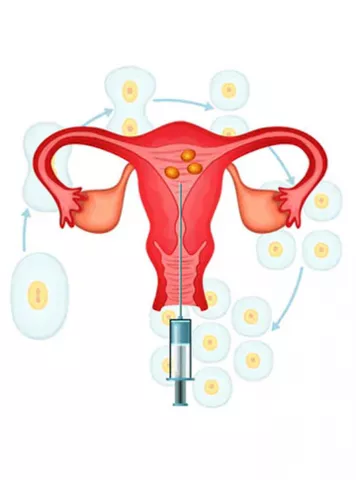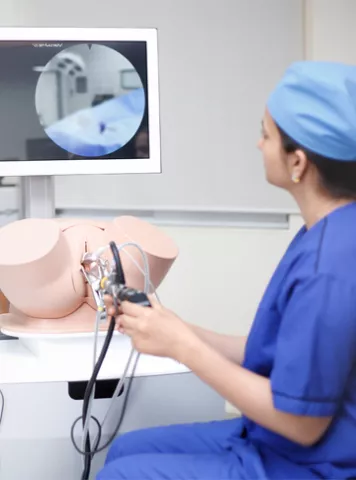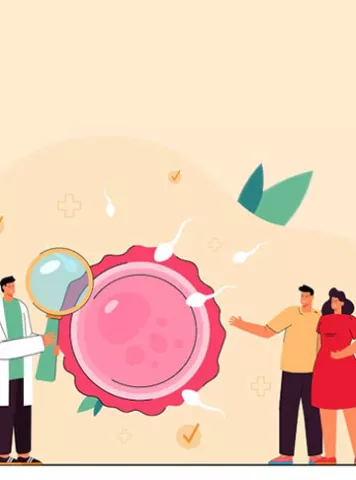Intrauterine insemination (IUI), in simple terms, is a simple procedure that involves the direct placement of healthy sperm into the uterus. IUI helps you by giving the sperm a greater chance of reaching the uterus, it does not place the sperm directly inside the egg, unlike In vitro fertilization (IVF), which involves removing the egg outside the uterus where fertilization is done externally.
To ensure the highest chances, the male donor’s sperm is extracted and sent to an andrology lab, where the sperm is converted into a concentrate, only the healthiest sperm remain after processing. IUI simply increases the chance of pregnancy, perhaps by a significant amount depending on a number of factors.
It is non invasive and minimally expensive, which is what makes it the go to option for most couples. Only after consulting a physician can a couple actually be aware of what the best steps might be for them. This article is simply to give the reader a good understanding of what they might expect and what the best time for IUI treatment might be.
IUI is used most commonly in cases of low sperm count or decreased sperm motility. In this case IUI is the ideal option, as placing the sperm directly into the uterus maximizes the chances of fertilization. IUI is also used as a fertility treatment for other conditions, such as cervical mucus problems, IUI places the sperm past the cervix where they can move freely.
IUI is used most commonly in cases of low sperm count or decreased sperm motility. In this case IUI is the ideal option, as placing the sperm directly into the uterus maximizes the chances of fertilization.
IUI is also used as a fertility treatment for other conditions, such as cervical mucus problems, IUI places the sperm past the cervix where they can move freely.
After consulting a doctor, a candidate can determine whether they are eligible for the treatment, this may consist of a hysterosalpingogram (HSG) test, which reveals if there are blockages in the fallopian tube that may prevent eggs from travelling to the uterus during the process of fertilization. Any couple who passes the HSG test and has a sufficient sperm sample should be eligible for IUI.
Age also plays an important factor, studies have revealed that age 20-25 show the most frequently successful results, successful outcomes decrease with age and patients above 40 have little or no chance of successful outcomes.
For a candidate to have the best chance of fertilization, there are a number of steps a couple can take to ensure higher chances, these steps may increase the IUI risk factors and it is important to understand before moving forward.
Doctors may often prescribe fertility drugs, these are prescribed at very specific timings, to ensure that the drug is flushed out before the fertilization process. Unchecked self-medication of Clomid Clomiphene citrate can cause serious risks of babies being born with birth defects.
If the fetus is exposed to the drug, it can halt growth of new blood vessels. Fertility drugs also increase the chance of multiple pregnancies, which can hinder the growth and cause babies to be premature or result in miscarriages.
In rare occasions, use of fertility drugs can lead to the development of Ovarian hyper stimulation syndrome (OHSS) which can cause swelling and pain in the ovaries.
Smoking can severely affect fertility and can cause issues such as hindrance in hormone production, hinder the fertilised eggs ability to reach the uterus or damage the fetus directly.
Menstrual cycles are tracked and observed through ultrasound to determine when exactly the mature follicle will ovulate and when the best time for IUI is.
The maturing of the follicle initiates the first step of IUI which involves an injection of HCG, which prompts ovulation to occur within 36 hours of the injection. HCG indicates to the body that it is pregnant, which initiates the production of oestrogen and progesterone- vital in the development of the embryo.
The actual procedure is quick and painless, the washing and processing occurs on the morning of the procedure, the procedure itself is completed, painlessly in a few minutes.
Post the procedure the patient must wait 2 weeks to find out where the procedure was successful or not. This is prevented through the tests conducted, doctors can determine the number of follicles present during the time of ovulation before the procedure begins.
Although it has been shown that the inclusion of fertility drugs can result in higher success rates of fertility, many couples opt to go for the natural process without continuous monitoring, which is primarily required when fertility drugs are being used.
A patient them self can take certain measures to ensure that it is the right time for IUI. Diet is one of these measures, a healthy diet consisting of fruits and vegetables, minimizing processed foods and generally living healthy can increase chances of Pregnancy.
IUI may not be successful during the first cycle, and couples can choose to opt for several cycles of IUI, which increase the chance of fertilization further. Cycles can go up to 12 months, but it is advisable if a couple does not experience success within this time period to consider other options.
IUI can also be an ideal option for who are unable to engage in sexual intercourse but have no fertility problems as such, or people who have a physical or mental disability which prevents them from engaging in intercourse.
It is important to remember that the way one chooses to do the procedure is very important. Although fertility drugs may increase the chance of fertilization, it is important to remember the process and the stress a couple might endure through the testing period.
The risk factors of fertility drugs are not significant if used under proper medical supervision, but require the process to be undertaken in a less natural way which is not preferred method for some people.
A positive mindset and outlook can always help remember that if IUI does not work for you, there are other, more aggressive options such as IVF.
Comments
Articles
2022


Guide to infertility treatments IUI
What is Intrauterine Insemination (IUI) Treatment
How do infertility treatments work and how effective are they? Thanks to me...
2022


Guide to infertility treatments IUI
Why Artificial Insemination Usually Fails
Author Name:Dr. Pooja Kumari||Mentor Name: Dr. Reema Sircaron April 27, 2020 ...
2022


Guide to infertility treatments IUI
What is IUI? When it should be done?
Author Name: ;Dr. Shweta Jain ;Mentor Name: ;Dr. Pratibha Singh ;on April 09, ...
2022


Guide to infertility treatments IUI
How Counsellor can help during IUI Treatment
Often people dealing with problems such as infertility need support and counse...
2022


Guide to infertility treatments IUI
IUI Technique
WHAT IS IUI? Techniques used for IUI, Intrauterine insemination is the proc...
2022


Guide to infertility treatments IUI
How IUI Can Help In Infertility?
Infertility is not a disease, labelling it as a disease would be wrong. Infert...
2022


Guide to infertility treatments IUI
IUI उपचार की सफलता दर को बढ़ाने के 7 असरदार उपाय
अंतर्गर्भाशयी गर्भाधान अथवा ...
2022


Guide to infertility treatments IUI
IUI for Male Factor Infertility
IUI for Male Infertility Treatment Intrauterine Insemination (IUI) process ...
Tools to help you plan better
Get quick understanding of your fertility cycle and accordingly make a schedule to track it















